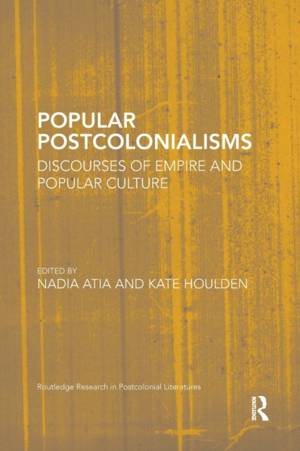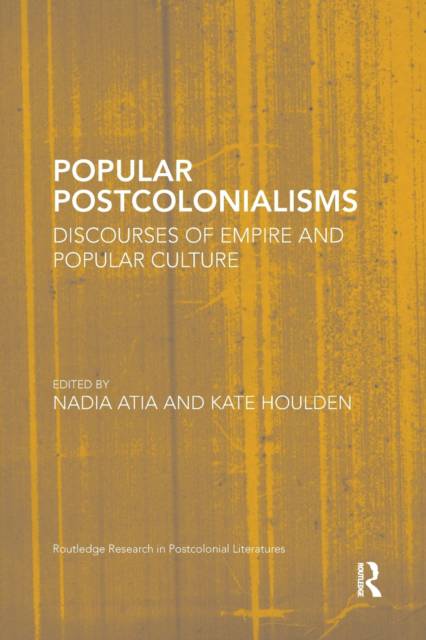
- Retrait gratuit dans votre magasin Club
- 7.000.000 titres dans notre catalogue
- Payer en toute sécurité
- Toujours un magasin près de chez vous
- Retrait gratuit dans votre magasin Club
- 7.000.0000 titres dans notre catalogue
- Payer en toute sécurité
- Toujours un magasin près de chez vous
Popular Postcolonialisms
Discourses of Empire and Popular Culture
Description
Drawing together the insights of postcolonial scholarship and cultural studies, Popular Postcolonialisms questions the place of 'the popular' in the postcolonial paradigm. Multidisciplinary in focus, this collection explores the extent to which popular forms are infused with colonial logics, and whether they can be employed by those advocating for change. It considers a range of fiction, film, and non-hegemonic cultural forms, engaging with topics such as environmental change, language activism, and cultural imperialism alongside analysis of figures like Tarzan and Frankenstein. Building on the work of cultural theorists, it asks whether the popular is actually where elite conceptions of the world may best be challenged. It also addresses middlebrow cultural production, which has tended to be seen as antithetical to radical traditions, asking whether this might, in fact, form an unlikely realm from which to question, critique, or challenge colonial tropes. Examining the ways in which the imprint of colonial history is in evidence (interrogated, mythologized or sublimated) within popular cultural production, this book raises a series of speculative questions exploring the interrelation of the popular and the postcolonial.
Spécifications
Parties prenantes
- Editeur:
Contenu
- Nombre de pages :
- 276
- Langue:
- Anglais
- Collection :
Caractéristiques
- EAN:
- 9780367666149
- Date de parution :
- 30-09-20
- Format:
- Livre broché
- Format numérique:
- Trade paperback (VS)
- Dimensions :
- 152 mm x 229 mm
- Poids :
- 385 g

Les avis
Nous publions uniquement les avis qui respectent les conditions requises. Consultez nos conditions pour les avis.





